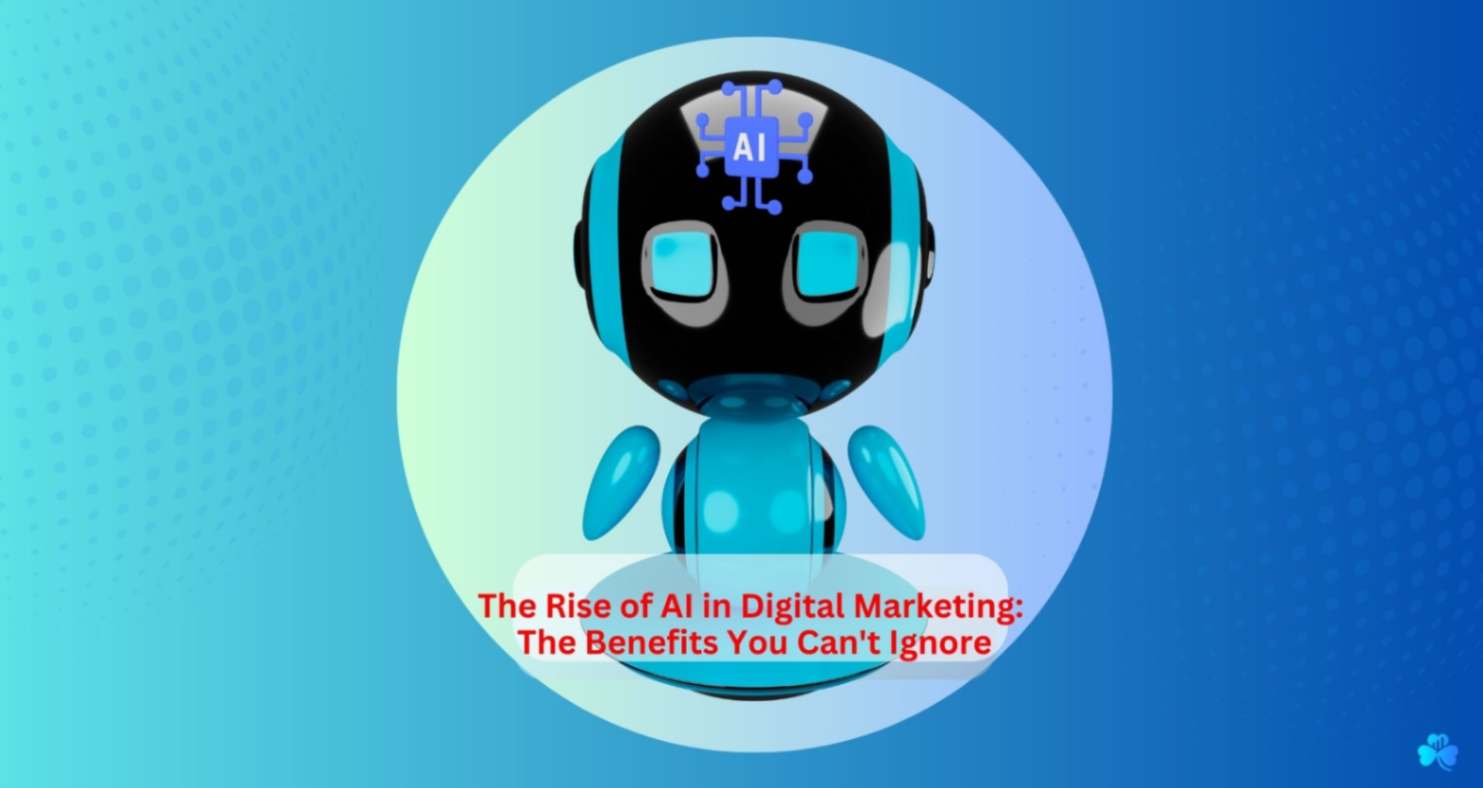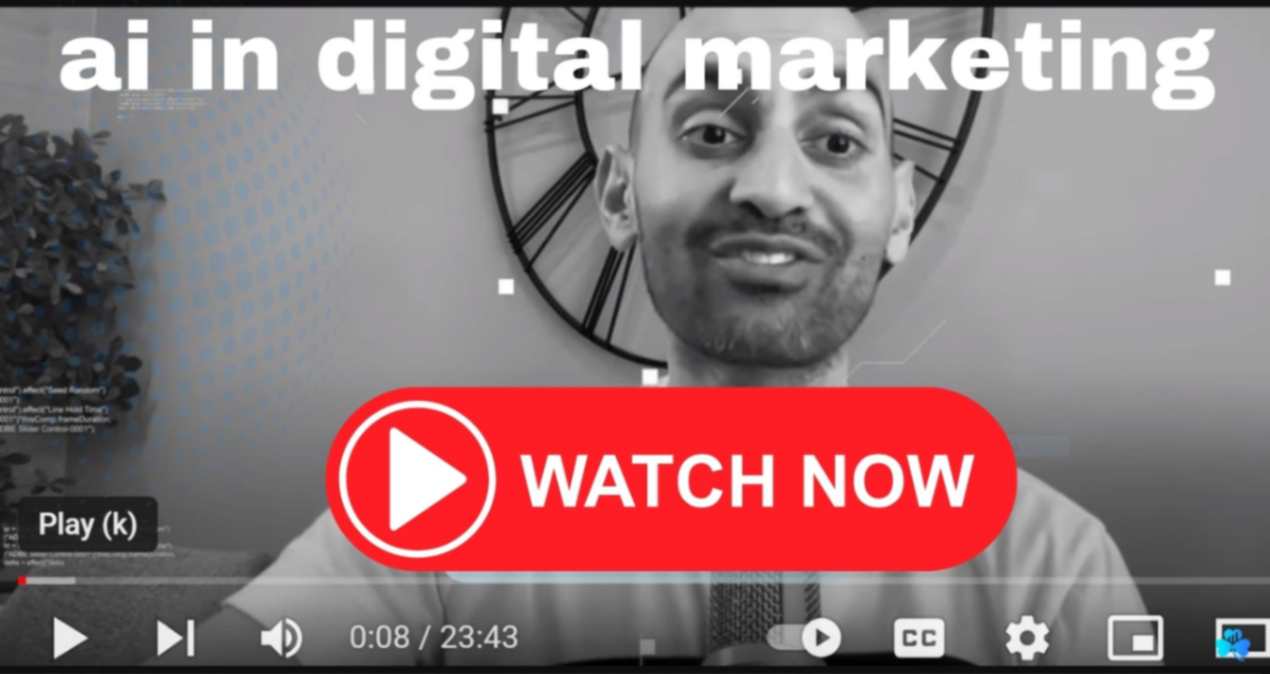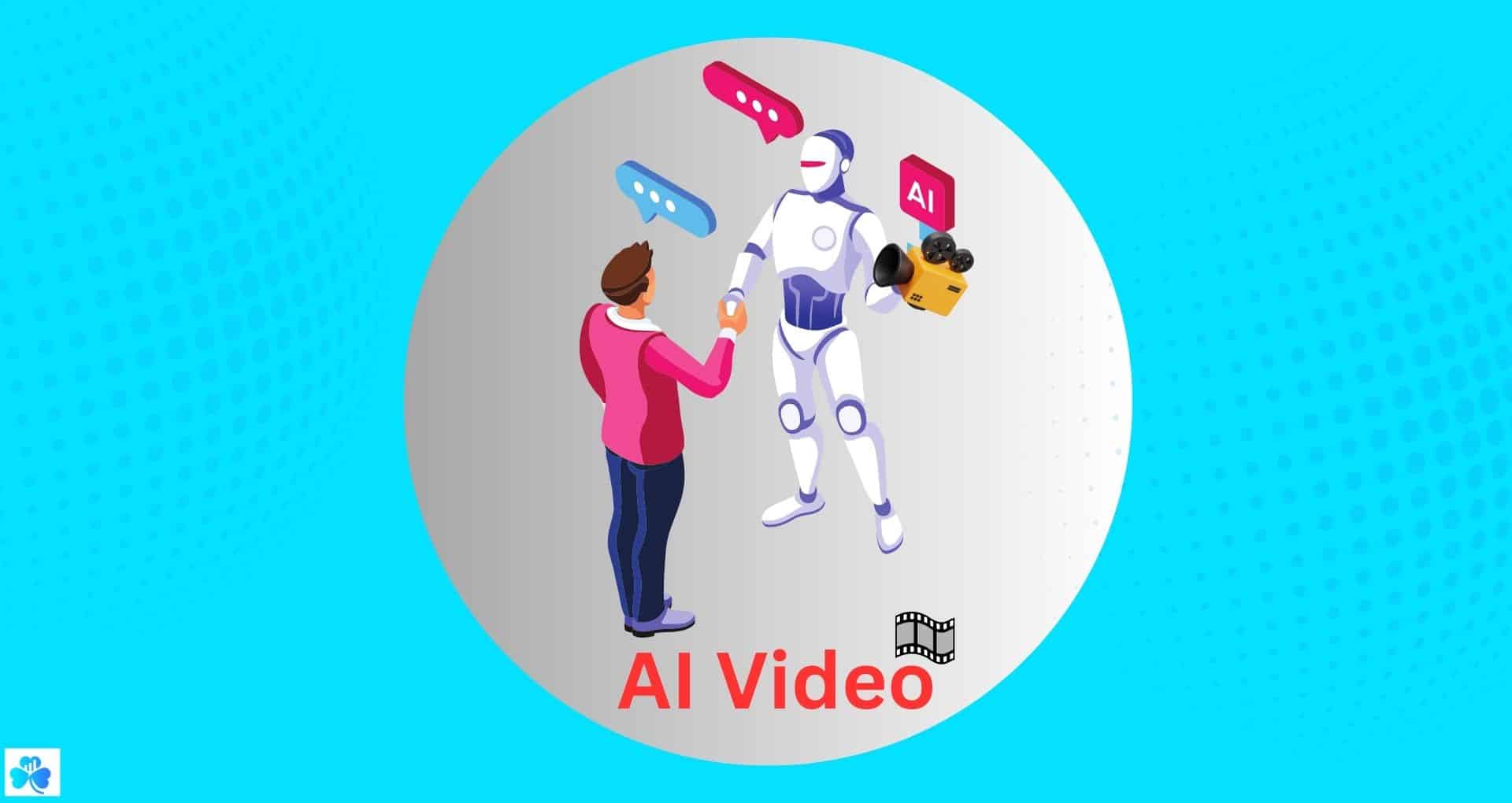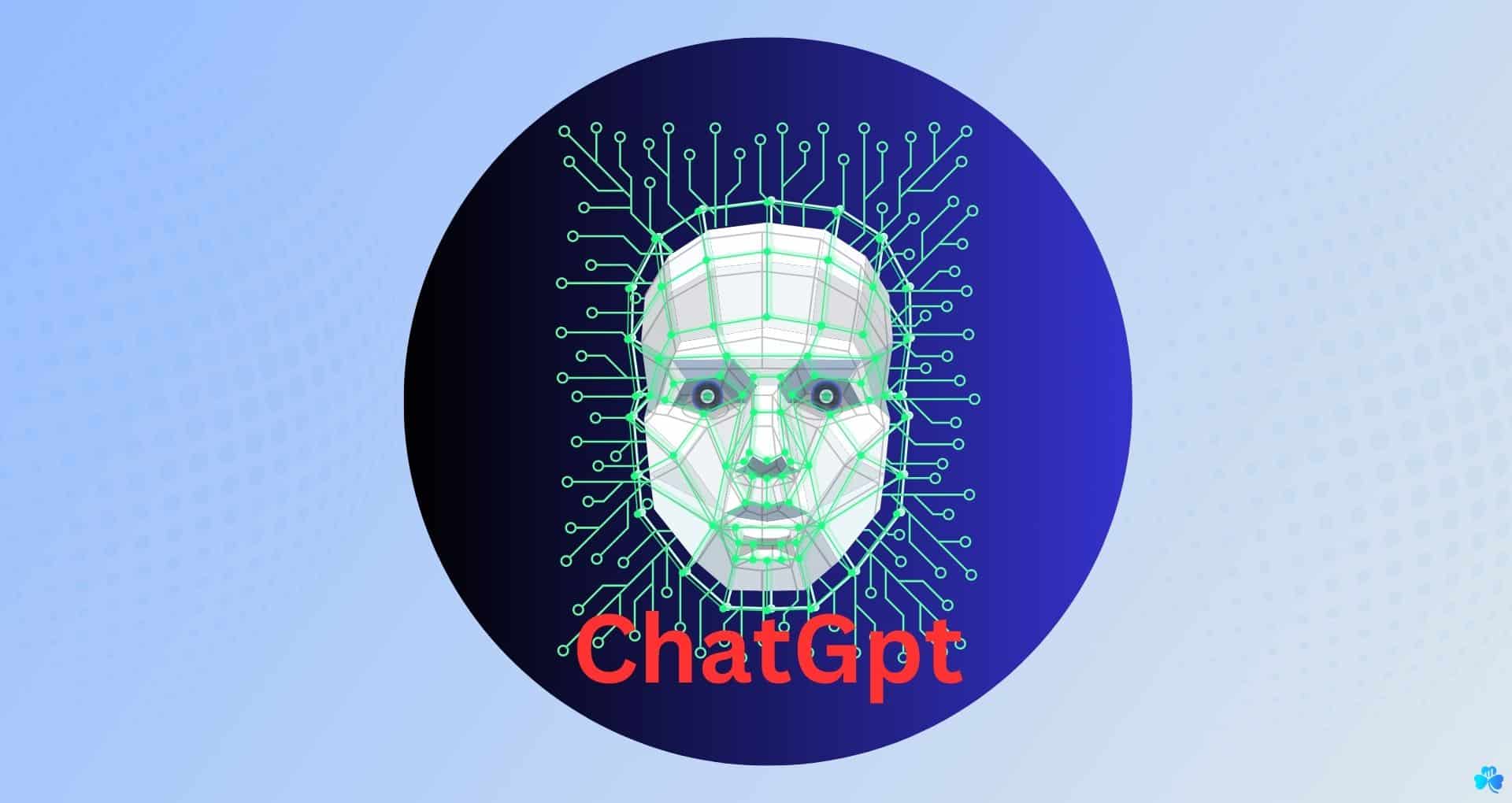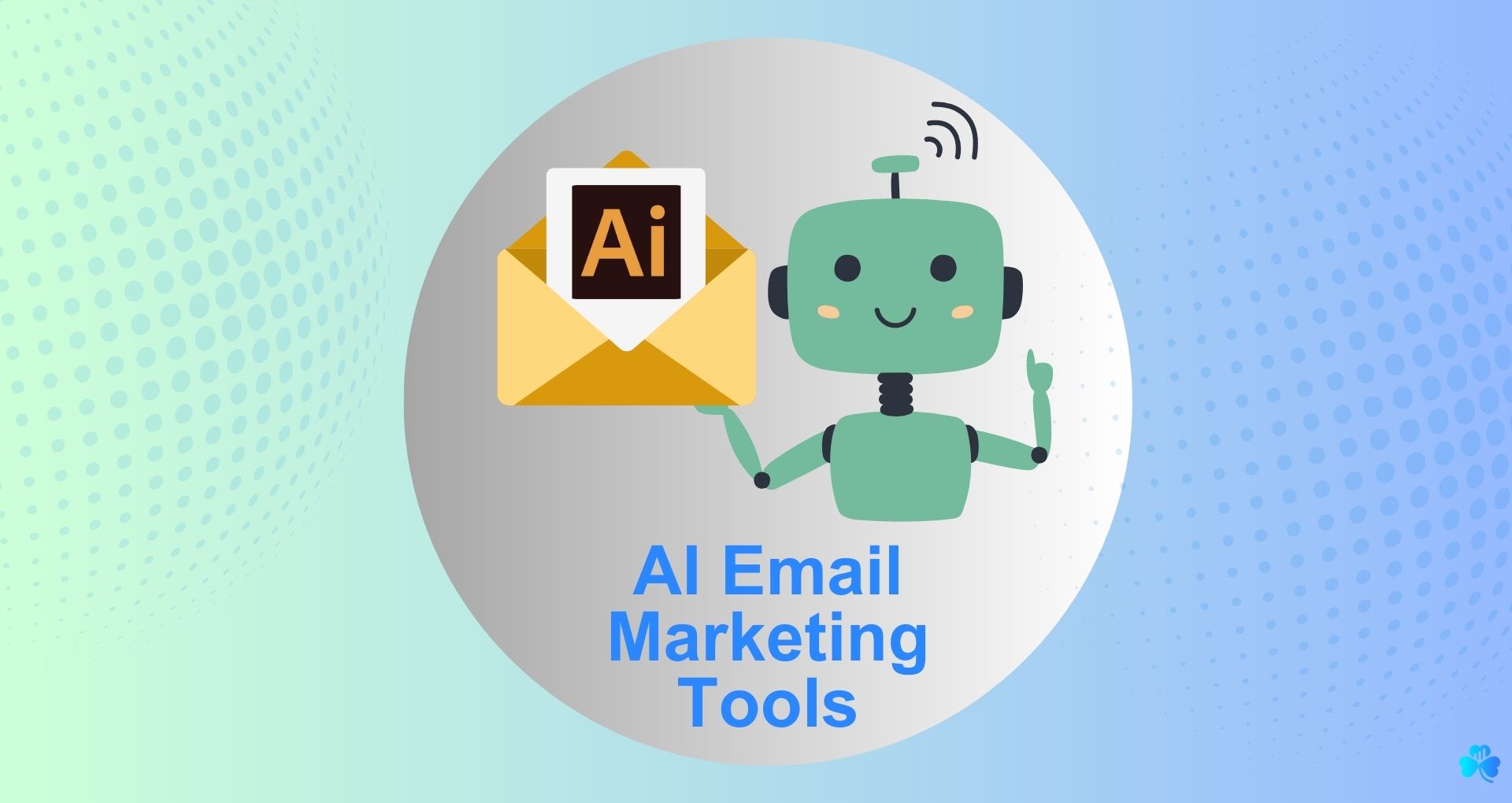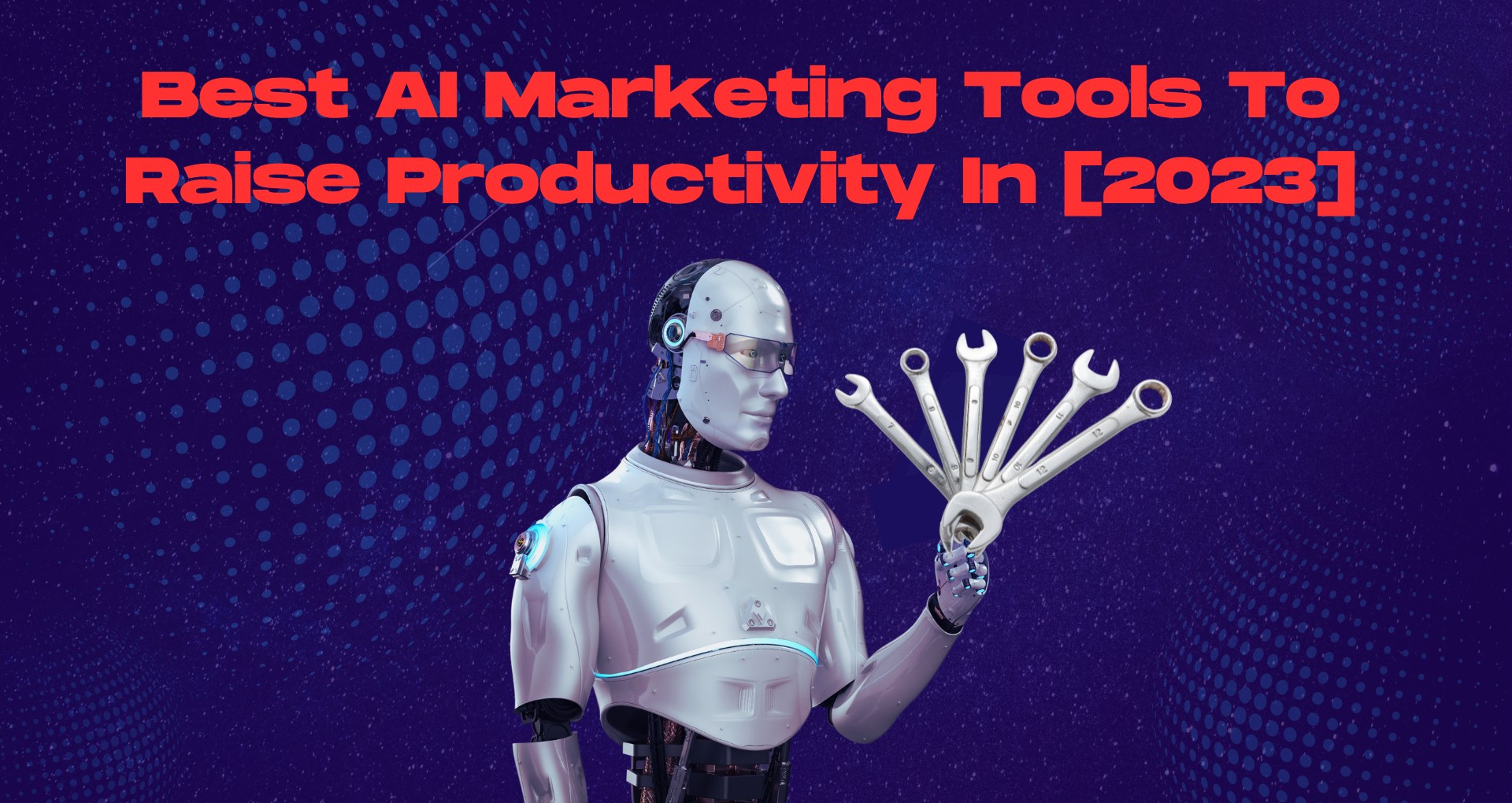Just a few years ago, leveraging artificial intelligence, or AI, was mainly something you'd hear about in science fiction movies. But today, it's everywhere.
AI began as a brilliant notion for making computers into human beings and robots with human intelligence.
Initially, it was employed to perform simple tasks such as filtering spam emails and suggesting songs you would enjoy.
However, AI improved as computers became more powerful and humanity began gathering massive amounts of data from the internet.
AI's trajectory has been fantastic, from a scientist's idea to being a part of our daily lives. And things will only get more interesting from here on.
Because AI has now risen to help online marketers and e-commerce business owners in their work too.
So, today, we’ll look at the rise of ai in digital marketing landscape, its benefits, and its implementation.
This article might contain referral links from our chosen partners, that may bring us a small commission at no additional cost to you. Please read our disclosure page for more details.
Importance of Digital Marketing in the Modern Business Landscape
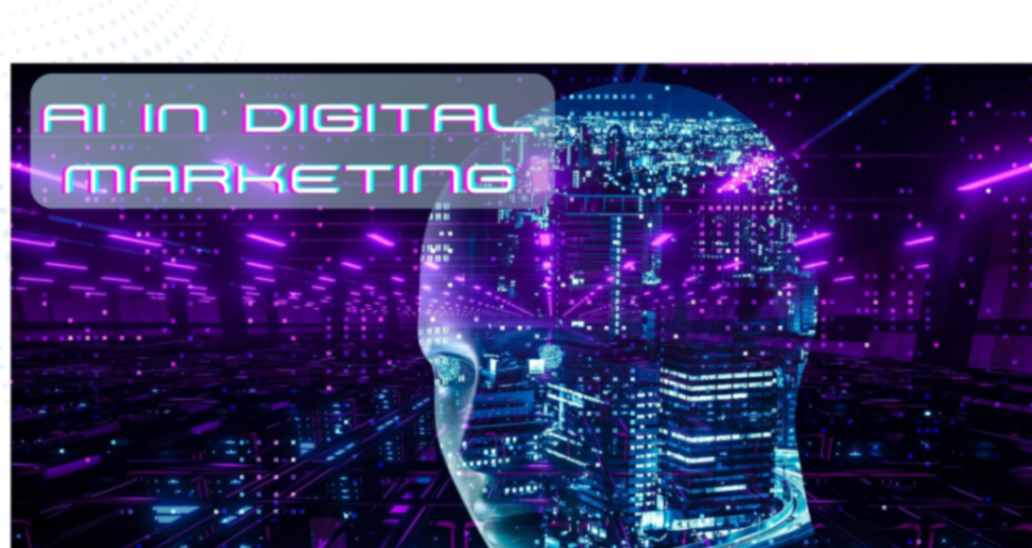
In our contemporary, hyper-connected era, digital marketing has emerged as a vital tool for companies to effectively reach out to and engage with audience segments beyond their target audiences.
As the technological landscape continues to evolve and consumers increasingly shift towards online platforms, traditional marketing techniques are losing their effectiveness.
This shift has necessitated the emergence of more innovative and technologically-driven content marketing strategies.
In fact, a recent leadership report by Drift underlines this trend. According to their study, 79 percent of respondents believe that leveraging artificial intelligence, (AI) will be among the technologies that will significantly influence the future of marketing.
These strategies, and ai marketing, including social media marketing, SEO, email marketing, and dynamic content marketing, enable enterprises to reach a worldwide audience, monitor their marketing activities in real-time, and customize their marketing messages, enhancing their ai marketing, competence, and efficacy.
In addition, it evens the playing field for businesses of all scales, empowering smaller ventures to rival larger firms.
Through online marketing, companies can enhance their visibility, cultivate brand awareness, and nurture customer relationships at a much lower cost than conventional marketing tactics.
It also equips businesses with critical insights into their customers' behaviors, preferences, and needs, enabling them to make decisions rooted in data and adjust their services to meet customer expectations.
In an era where the customer reigns supreme, digital marketing is an irreplaceable asset for businesses to remain competitive and pertinent in the contemporary commercial landscape.
The Intersection of AI and Digital Marketing: Brief Introduction

The crossroads of Artificial Intelligence (AI) and digital marketing is a fascinating space where technological innovation meets creative marketing strategy.
With its capacity to analyze vast amounts of recognized patterns, AI has become an invaluable tool in the digital marketer's kit.
It aids in creating personalized customer experiences, automating repetitive tasks, and delivering precise insights about customer behavior and market trends, making it an essential component of modern marketing campaigns.
Artificial Intelligence, or AI, is changing the way we do digital marketing.
One big way is through AI-powered chatbots.
These are programs or apps, that can talk to customers 24/7.
They also use integrated machine learning apps, which are a type of AI, to suggest products that customers might like.
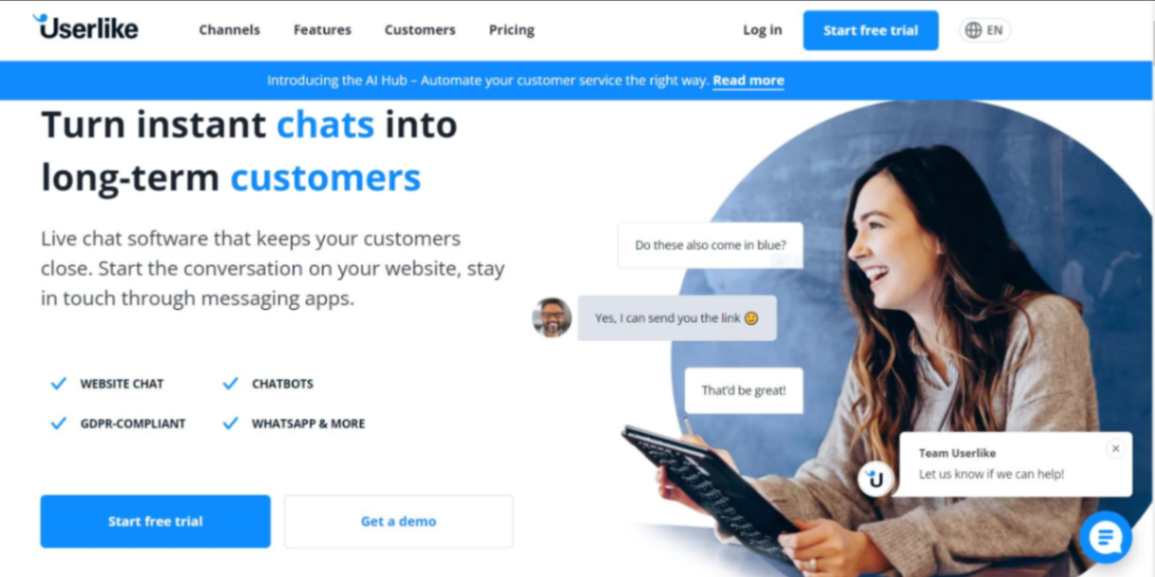
USERLIKE live chat software
The goal of all this is to make things easier for people who work in the marketing industry. It also aims to make the shopping experience better for customers.
It does this by making sure they see things that are relevant to them, which makes their interactions with companies more engaging.
A sign of this trend is the globally growing chatbot market according to (research and markets). In 2020, this target market was worth $17.17 billion U.S. dollars.
By 2026, it's expected to reach around $102.29 billion. This shows that there is a big demand for these tools, and it's growing quickly.
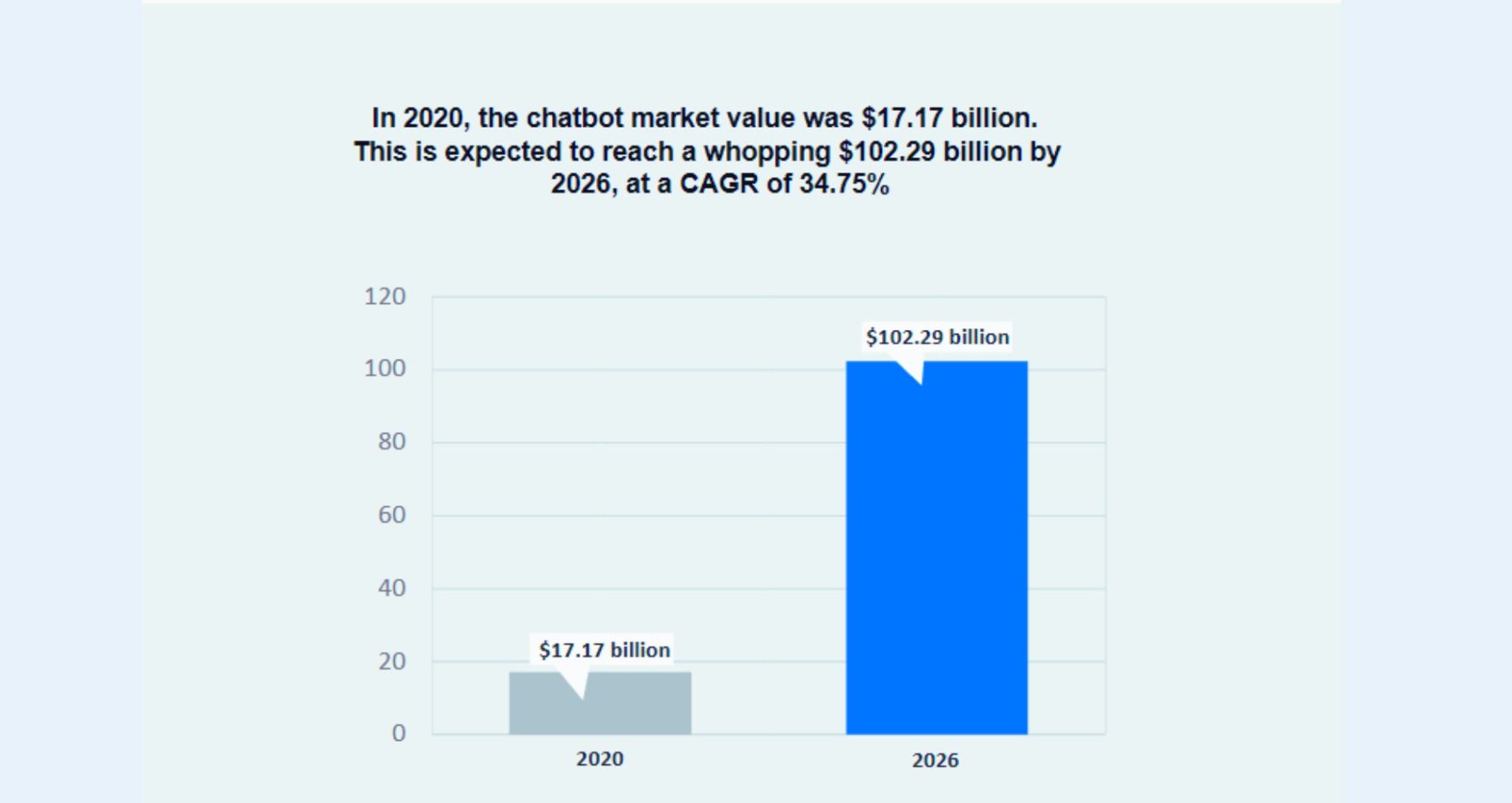
It's clear that the fusion of AI and marketing is shaping a new era of customer-centric marketing.
The 2022 survey revealed that globally, 32% of marketers utilized AI and marketing automation for paid advertising and email personalization, while 22% used it for product recommendations and personalizing email subject lines.
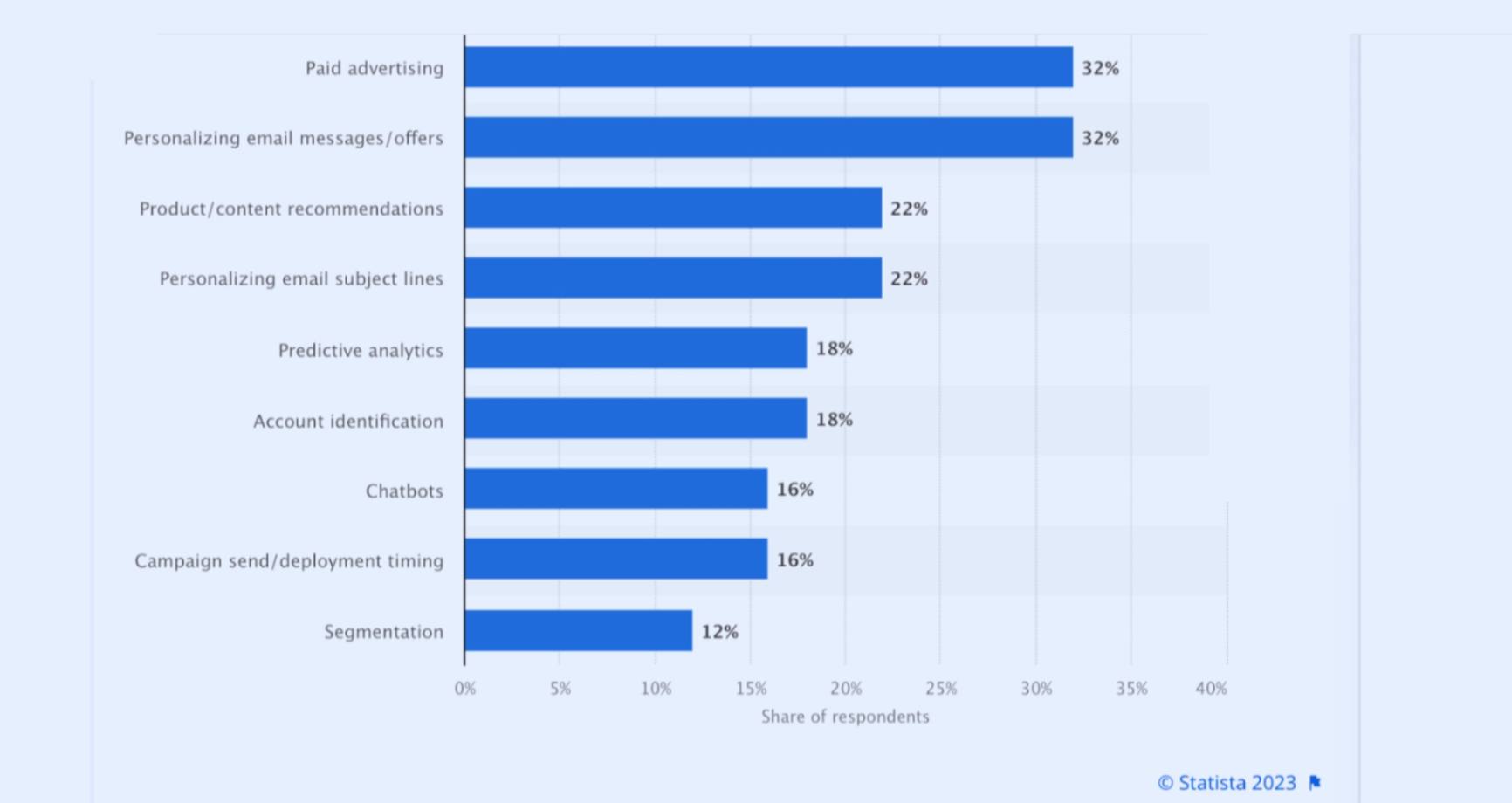
The Role of AI In Digital Marketing
Today's marketing mavens acknowledge the importance of a deep and insightful grasp of their audience, an aim made more achievable with AI's assistance.
Current AI systems empower businesses and their marketers to extract and analyze comprehensive customer data from various sources, paving the way for more profound customer relationships, authentic interactions, and even increased sales conversion rates.

And that is why, in a 2023 UK survey, 94% of senior brand marketers reported using AI in digital advertising, and 87% considered it a crucial component of their marketing ai- strategy.
Streamlining Marketing Tasks with AI
A critical aspect of AI in marketing is its ability to automate and enhance numerous marketing duties, including identifying potential customers (lead generation), ranking leads based on their likelihood to convert (lead scoring), and maintaining customer loyalty (customer retention).
AI algorithms allow businesses to detect prospective customers and interact with them at the optimal moments when they're most likely to be responsive.
Automation through AI saves valuable time and resources, boosts efficiency, and ensures the right customers are reached at the right moments.
Personalization of Customer Experience With AI
Another crucial area where AI is having a significant impact is personalization.
By establishing a complete profile of each consumer based on data acquired from their browsing activity, purchase history, and other interactions,
AI technology helps marketers develop highly targeted digital advertising.
These customized content marketing techniques cater to the likes and preferences of specific customers, resulting in a more exciting and rewarding user experience.
A recent survey conducted in the United States in October 2022 underlines the growing role of machine learning and AI in personalized marketing.
The survey found that 57% of B2B marketers had integrated chatbots into their demand generation programs, utilizing this AI tool to gain a better understanding of their audience.
By using more data and boosting engagement and conversion rates, customized, marketing campaigns, driven by AI, can eventually enhance the return on investment (ROI) in marketing initiatives.
Predicting Trends With AI
AI can detect patterns of future behavior and trends in larger audience groups to predict future business metrics like revenue generation, market changes, or the likely success of a marketing campaign.
This approach which we call a data-driven approach, allows and helps businesses to make informed decisions, optimize their marketing strategies, and maintain their competitive advantage.
Benefits of Using AI in Digital Marketing
- Personalization: AI scrutinizes a plethora of customer information, including their browsing habits and purchase history, to craft a unique, personalized customer journey. For instance, Netflix uses AI to provide users with personalized content suggestions based on their viewing history.
- Precision Targeting: AI aids digital marketers in defining target audiences and facilitating the creation of focused campaigns based on various criteria such as demographics and purchase history. Amazon, for example, uses AI to show consumers products related to their recent searches.
- Task Automation: AI can shoulder routine tasks like orchestrating email marketing campaigns or scheduling social media posts, freeing marketers to concentrate on more strategic tasks. Tools like Hootsuite leverage AI to automate social media content planning and posting.
- Predictive Analytics: AI algorithms can scrutinize data and anticipate future trends, like market shifts or consumer behavior, empowering marketers to make informed, data-driven decisions.
- Improved Efficiency: AI-powered tools can streamline marketing operations, from eliminating tedious manual data entry to reducing human error, leading to more efficient workflows.
- Cost-Effectiveness: By optimizing and automating campaigns, AI can help companies trim expenses while maximizing their return on investment (ROI).
- Real-Time Adjustments: AI can swiftly process data and tweak campaigns on-the-fly, enabling marketers to enact immediate changes for improved campaign performance.
- Engaging Customers: tools, like chatbots or virtual assistants, offer a more personalized, interactive customer experience. For example, Sephora's AI-powered chatbot provides personalized beauty advice to many customers.
- Better Insights: AI-driven analytics tools provide businesses with more accurate, comprehensive insights into customer behavior, helping them pinpoint areas for improvement.
- Customer Retention: AI's ability to create personalized interactions, targeted offers, and an engaging experience can enhance customer loyalty and retention.
- Brand Loyalty and Reputation Management: AI can monitor and manage a company's online reputation by analyzing customer sentiment and proactively addressing issues, as seen in tools like Brand24.
- Optimized Ad Targeting: AI's ad targeting capabilities ensure the right audience is reached at the right time, reducing ad wastage and improving conversion rates.
- Competitive Edge: Businesses harnessing the power of AI in their digital marketing strategies can gain a competitive advantage, staying ahead in marketing tactics and technology.
- Quick Market Entry: With AI, marketers can promptly spot trends and kickstart campaigns, slashing the time to market for new offerings.
- Enhanced Customer Segmentation: AI can segment customers more effectively, enabling businesses to deliver more targeted content and promotions. For example, Spotify uses AI to curate personalized playlists for its users.
- Comprehensive Attribution Modeling: By examining multiple touchpoints in the customer journey, AI helps businesses grasp the impact of their marketing efforts on revenue and conversions. Google Analytics uses AI to provide more accurate attribution modeling.
Optimal AI Implementation in Digital Marketing: A Detailed Guide with Examples
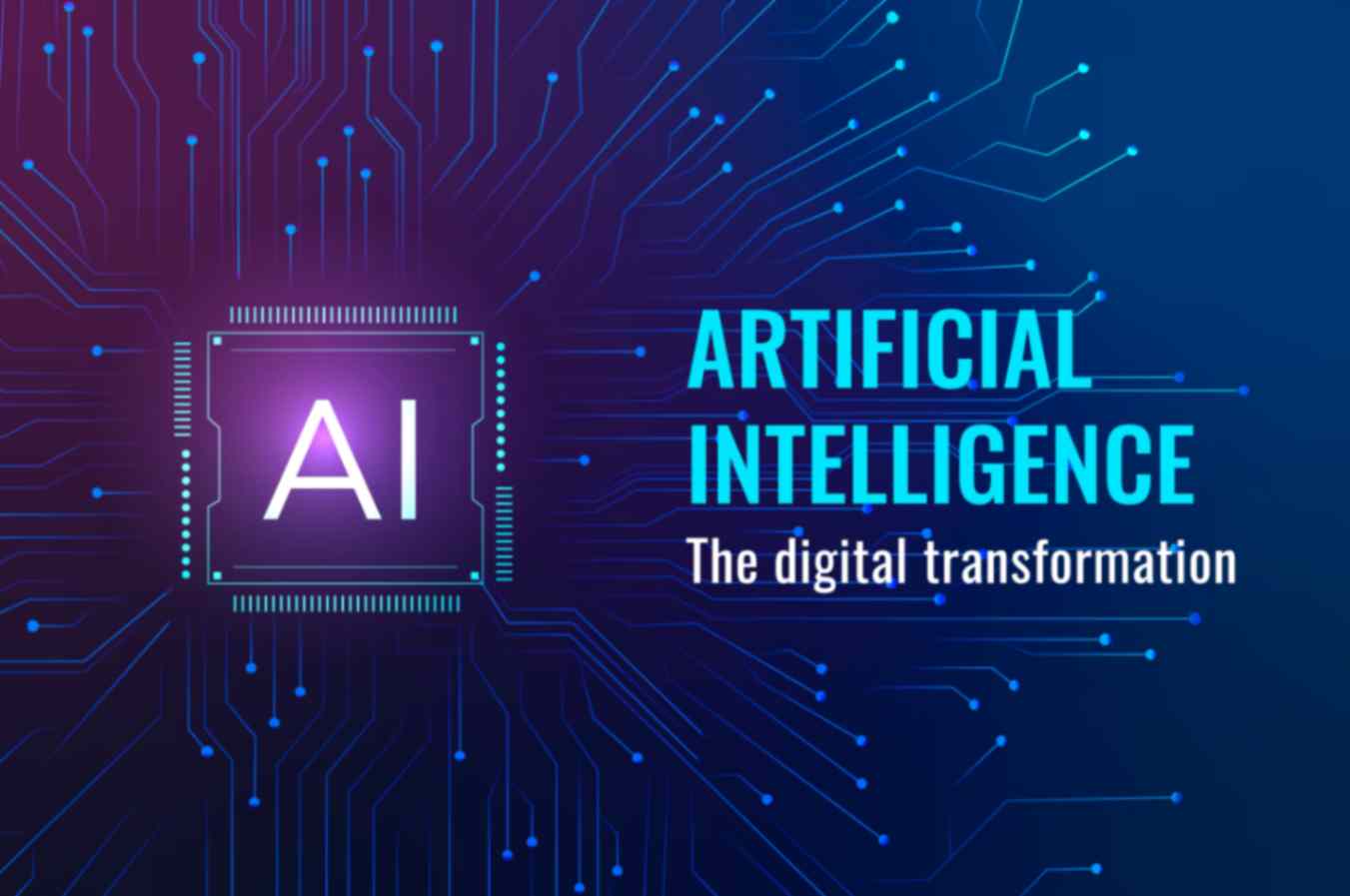
Artificial Intelligence (AI) has become a driving force in online marketing, revolutionizing how businesses interact with customers, collect data and analyze market trends.
However, to fully reap the benefits, it's critical to implement AI strategically.
Here is an extensive guide with examples of leveraging the machine learning technology and artificial intelligence (AI) into your strategy for marketing.
Step 1: Identify Areas for Integration
The first thing or step is to identify the areas that would benefit most.
This could also include social media marketing techniques, which could be improved with AI-driven insights and automation.
Example: An online retailer might identify a need to understand better customer purchasing habits to provide more personalized marketing messages. Here, an AI-powered recommendation engine could be a perfect solution.
Step 2: Choose the Appropriate AI Tools
After identifying your needs, the next step is to select the right tools.
These could include chatbots for customer service, AI online content creation tools, predictive analytics software, or AI-powered personalization tools for digital marketers.
These tools can significantly enhance search engine optimization, making your web page or website blog post more visible to potential customers.
Example: A marketing agency might choose an AI content creation tool to streamline the production of SEO-optimized blog posts, saving time and ensuring consistently high-quality and relevant content.
Step 3: Train Your AI tool and Your Team
Training your AI using relevant and accurate data is crucial to its effectiveness.
Additionally, your team must be prepared to use the AI tools proficiently and interpret the insights they provide.
Example: A company could train its AI chatbot using a comprehensive database of customer inquiries and responses. Simultaneously, the customer service team would need training on using the chatbot and handling questions requiring human intervention.
Step 4: Monitor Performance and Adjust Accordingly
This is especially crucial in marketing, where AI can help optimize campaign performance in real-time.
This might involve fine-tuning the AI algorithms or retraining the AI with updated, high-quality data.
Example: A business using AI for email marketing might monitor AI-generated emails' open and click-through rates. If these metrics are lower than expected, the email message or company could adjust the AI's parameters or retrain it with new data.
Step 5: Gradually Scale Up Your AI Efforts
While AI can dramatically enhance your marketing efforts, it's generally best to start small and scale up gradually.
This approach lets you learn from any initial hiccups and adjust your strategy without disrupting your operation.
Example: A company might start by implementing AI personalization in a single email marketing campaign. Once they've refined their approach and seen positive results, they could expand AI personalization to all their marketing efforts.
Hence, implementing AI in digital marketing requires careful planning, the right tools, proper training, constant performance monitoring, and a measured approach to scaling up. These steps will enable you to harness AI's potential, leading to more effective and efficient digital marketing campaigns and plans.
Potential Challenges and Solutions in Implementing AI in Digital Marketing
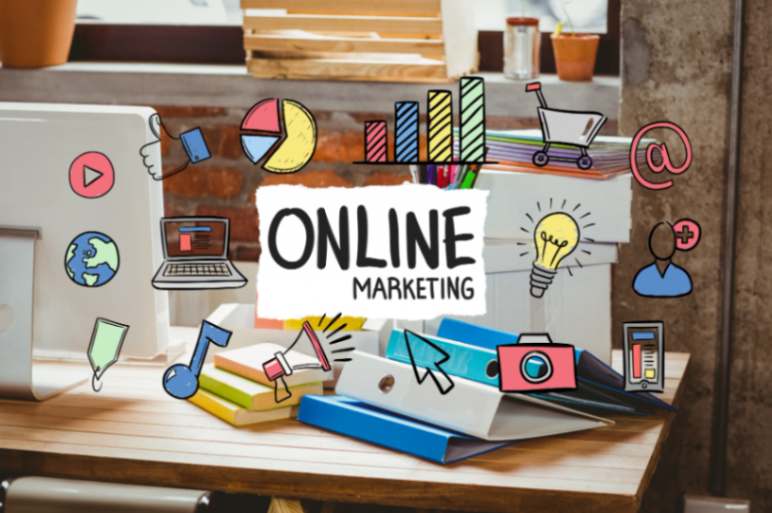
In a survey from September 2021, over 50% of advertisers and agencies in China expressed concerns about the impending 'brain drain' issue and a scarcity of referenceable AI marketing cases, a concern shared by more than half 56% of agency respondents, as potential hurdles in the future of AI marketing.
Thus, we can see that AI in marketing can be transformative but has unusual challenges.
Some include:
Data Privacy and Security: AI systems require large amounts of data to operate effectively, posing potential risks to consumer privacy and compliance with regulations such as GDPR.
Lack of AI Expertise: Many companies need more skilled professionals and technical knowledge to implement and manage AI.
Algorithmic Bias: Biased AI algorithms can lead to unfair or ineffective targeting, affecting the effectiveness of marketing efforts.
Lack of Transparency: AI's "black box" nature can make understanding how AI makes decisions difficult, leading to consumer mistrust.
Despite these challenges, the benefits of integrating machine learning and AI into your digital marketing strategy can't be ignored.
The advantages are numerous, from improved customer relationship management to more effective digital marketing campaigns.
Solutions to Overcome These Challenges:
Robust Data Security Measures and Policies: To ensure data privacy and security, companies must implement stringent data security measures and privacy policies and obtain explicit user consent for data collection and processing.
Investment in AI Talent and Training: Companies can overcome the lack of AI expertise by investing in training for their current staff, hiring new talent with AI expertise, or partnering with AI solution providers makes sense.
Ensuring Data Diversity and Regular Audits: To mitigate algorithmic bias, using diverse, representative data and performing regular audits of AI models to detect and correct any biases is crucial.
Focus on Explainable AI Models: To address the lack of transparency, companies should develop and use explainable AI models that provide insights into the decision-making process, fostering consumer trust and acceptance.
Final Thoughts

The Future of AI in Digital Marketing
AI has become an indispensable tool in modern marketing, providing insights and collecting data that help businesses better connect with and understand their customers.
From simple task automation and personalization to forecasting and predictive analytics, AI is reshaping how companies approach marketing in the digital era.
Whether predicting customer trends, enhancing ad targeting, or driving customer engagement through chatbots, AI's potential in marketing is vast and still needs to be explored.
As we look towards the future, AI is set to become the driving force in real-time, data-driven decision-making in marketing.
It will provide better insights into customer behavior and automate and optimize strategies to deliver a more personalized experience
Hence, AI's influence on the marketing industry and digital marketing landscape will only grow as AI evolves.
It will redefine how businesses approach CRM customer relationship management, SEO, and social media marketing.
It's all about enhancing customer satisfaction and building stronger consumer relationships.
The key will be for businesses to effectively harness this potential, adapting and evolving in an AI-driven landscape!
FAQs

What are the challenges of AI in marketing?
Challenges include ensuring customer satisfaction and data privacy, overcoming the lack of understanding and trust in AI technologies, integrating AI into existing systems, and finding the right talent to manage and interpret AI results.
How is artificial intelligence changing the face of marketing?
AI revolutionizes digital marketing by providing real-time insights, facilitating hyper-personalization, improving SEO through predictive algorithms, and optimizing customer engagement across various, digital advertising platforms.
SUGGESTED ARTICLES

